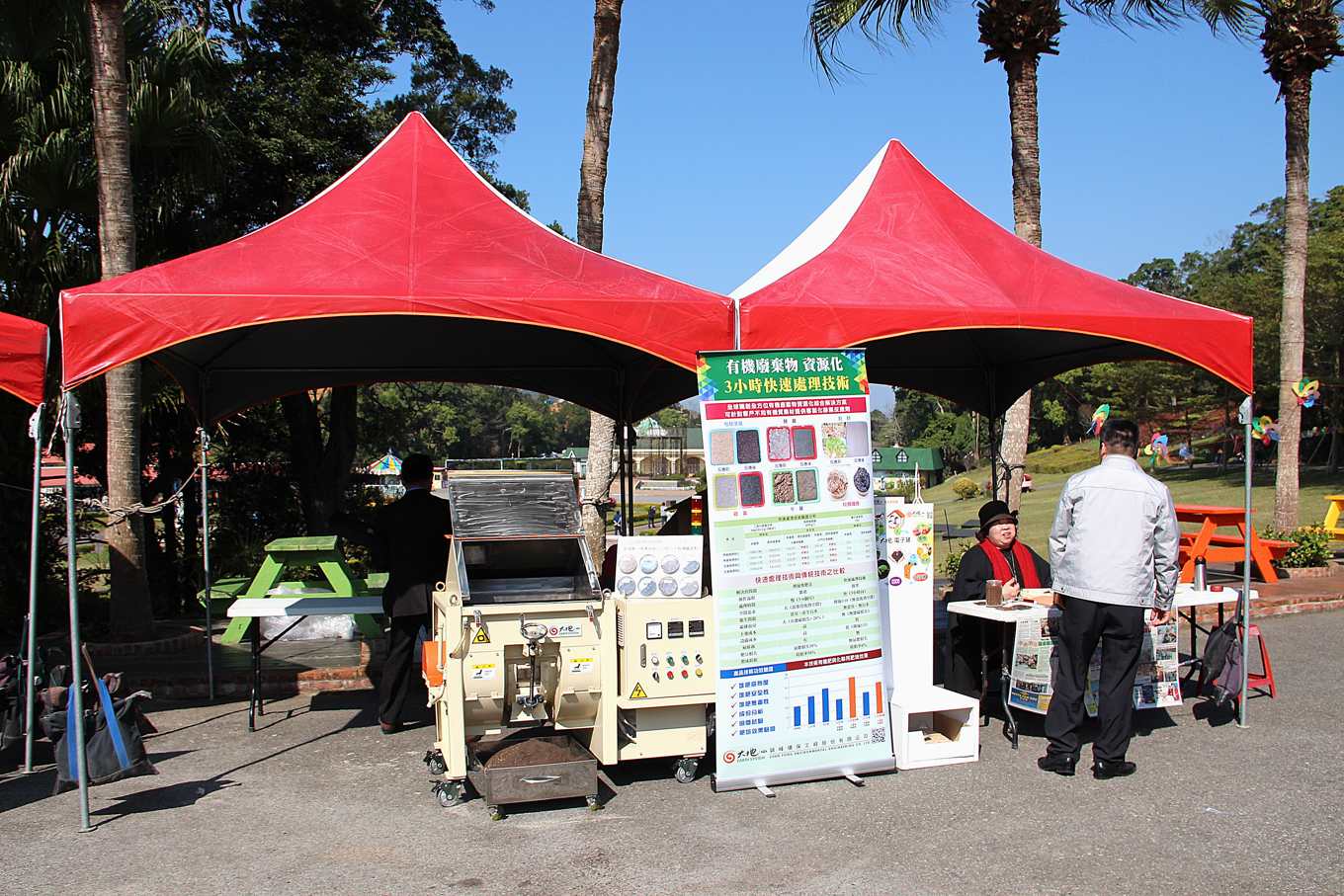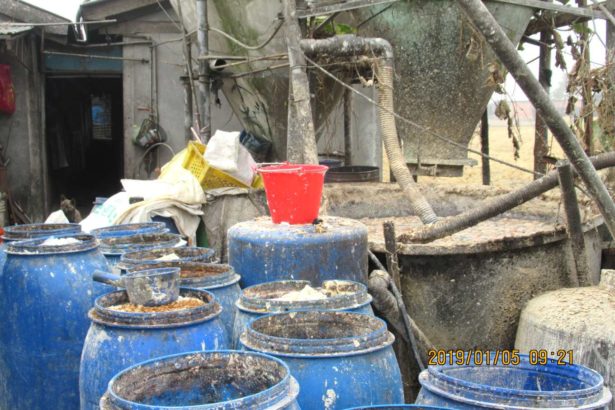Epidemic Prevention and Kitchen waste Wars 13. The EPD estimates that emerging kitchen waste treatment technologies will create 5 billion business opportunities! How does the crisis change for the better?
Share + 1 Tweet Email
In order to prevent African classical swine fever and reduce all possible infectious risks, food waste disposal has become the focus of attention from all walks of life. The EPA also held a meeting on food waste treatment equipment and technology media platform, inviting local environmental protection bureaus, catering operators with food waste treatment needs and 17 food waste equipment operators to gather together to showcase the existing domestic food waste treatment technology, stimulate the domestic food waste treatment market energy, and jointly solve the current problem of food waste removal.
Li Yi-Shu, head of the Environmental Inspector Corps of the Environmental Protection Agency, says that in the future, emerging food waste disposal technology will create business opportunities of at least NT $5 billion. In fact, there is already relevant technology in China, but previously cooked kitchen leftovers are fed to pig farmers, so there is no need to worry about de-chemicalization. therefore, at present, most of the food waste disposal operators sell their equipment to China, Southeast Asia, and other foreign countries, and there is no domestic market. People with skills have no place to sell, and people who need it now do not know who to turn to. In response to this discussion on the removal of food waste from African classical swine fever, we can also take this opportunity to understand the demand side and supply side of the removal of food waste in China, and turn the crisis into a turning point. Integrate the domestic market for food waste disposal.
The emerging kitchen waste treatment technology will create 5 billion yuan of business opportunities, but the laws and regulations need to be amended before they can be commercialized.
The EPD estimates that in the future, emerging kitchen waste treatment technologies will create business opportunities of at least NT $5 billion, including the completion of kitchen waste crushing, dehydration and high-speed fermentation facilities by local governments in the short term, and phased plans for large enterprises to set up their own treatment facilities, private composting plants to expand the acceptance of food waste, and medium-and long-term subsidies by the EPA for local governments to set up biomass energy plants and regional composting plants.
Li Yishu also said that if the food waste is made into compost, there are many restrictions according to the current composting application, and if it cannot be commercialized, even if the food waste is disposed of, the compost will become another problem that "needs to be demineralized." Therefore, the Environmental Protection Agency will also hold a meeting with agricultural administration units to revise the application conditions for food waste composting products. In the future, the composting products of food waste composting in various local counties, cities and operators can be used for commercial use and sold. We will make every effort to promote the implementation of food waste composting in terms of equipment and laws.

Pearl International Kitchen waste Recycling Machine

Watch this video on YouTube
Japanese equipment handles 25 tons of cooked kitchen waste a day, which is fermented and dried immediately.
In addition to the technology of composting kitchen waste, making feed is also another possible direction put forward at this meeting. He Ziwu, head of Dianshi Resources, takes the equipment in Hiroshima, Japan, as an example. If 25 tons of cooked kitchen waste is processed in a day, it takes 0.5 hours to ferment and 1.5 hours to dry. In order to prevent foot-and-mouth disease virus, high temperature and high pressure sterilization procedures are added to heat up to 120 degrees Celsius for one hour. In a total of two to four hours, the kitchen waste can be made into powdered feed.
Li Yi-Shu explains that at present, domestic "kitchen waste composting" mainly uses raw food waste as raw materials. because cooked food waste is more "nutritious," it will take three to six months to ferment. "if cooked food waste is used to make it, it will taste very strong." After the raw kitchen leftovers are made into compost, most of them are sent by township offices to farmers in need free of charge.
Promote composting, self-use or commercialization of the catering industry and large staff restaurants
If cooked food waste later enters the composting industry, on the one hand, the EPD will promote with the catering industry or large enterprises with staff restaurants to use it for their own horticultural use after self-composting, so as to implement the localized circular economy; on the other hand, it will also hold discussions with agricultural administration units to discuss in detail the qualifications for the sale of food waste composting products and make relevant adjustments. If food waste compost can be made into salable products, it will be able to invigorate the establishment of domestic food waste composting market and form economies of scale.
The EPD plans 450 million funds to subsidize equipment related to composting of kitchen waste and implement regional composting.
The EPA has planned a budget of 450 million for the removal of food waste, and has recently held many strategic discussion meetings with local environmental protection bureaus. Local counties and cities or enterprises that want to purchase equipment related to food waste composting can apply to the central government, and the EPA will also provide subsidies.
Li Yishu said that in the long run, the removal of food waste in the future hopes to move in the direction of bioenergy. At present, the Taichung Waipu Biomass Energy Plant has been completed, and Taoyuan is also under construction. Other Tainan, Kaohsiung and other local counties and cities also have this plan. However, because it takes time to find land and build a plant, and the estimated cost of a plant is also estimated to take off at "100 million", it is still mainly compost that can be implemented immediately in the short and medium term.
Ilan is equipped with a fast composting machine, which costs about 1 ─ 2, 000 yuan per ton of kitchen waste
Chien Liangda, head of the waste management section of the Ilan County Environmental Protection Bureau, said that he had contacted the relevant kitchen waste equipment operators as early as before the meeting, and at the end of February, the operators would first set up a fast composting machine capable of handling 100 kilograms for a trial period of two weeks. if it can be roughly in line with the situation of food waste in Ilan County, further fine-tuning will be made. The initial estimated acquisition cost is 20 million, and two are expected to be purchased. If the future budget is not allocated enough, part of the traditional composting will be maintained and some will be dealt with by a fast composting machine. He estimates that in the case of rapid composting, an additional 600 yuan per ton of bacteria is required, plus the cost of equipment, which costs about 1,000 to 2,000 yuan per ton of kitchen waste.
Hsinchu is expected to purchase labor services, which will be handled by operators
Luo Shichen, deputy director of the Hsinchu County Environmental Protection Bureau, said that the composting plant in Hsinchu County was just being renovated in the middle of last year, and a renovation budget was sought at that time, but it is now in progress, so there is no need to purchase equipment for the time being. If an epidemic breaks out before the refurbishment of the composting plant is completed in July and the amount of composting is sufficient, the pre-treatment of directly dehydrated and drained food waste will be outsourced to the operator with an emergency operating budget of NT $3 million. "it will be too late to buy equipment. We will probably go to buy labor services to deal with emergencies." Luo Shichen also said that it is understood that all counties and cities have submitted plans for the removal of food waste to the EPA, and the EPA will respond to local plans and make suggestions, which are currently at the stage of second adjustment.
Tainan Changhua applies for high efficiency fertilizer, dehydration and drainage equipment
Tainan City Environmental Protection Bureau Qiu Ruiji said that in addition to purchasing larger food waste buckets to prepare more food waste recycling, it will also apply to the central government for at least three sets of high-speed composting equipment, ranging from the function of dehydration and drainage to fermentation composting, each of which is about 30 million, so the application funds may come to 90 million. The Changhua county government said that it will be treated with compost in the short term, and the plan has been submitted to the central government, but the equipment specifications for dehydration and drainage, or whether or not to build special houses, will see how the budget will be allocated, and then decide to what extent to achieve.
Share + 1 Tweet Email
- Prev

Kitchen waste: the importance of the classification of kitchen waste and how much it can be disposed of.
Epidemic Prevention and Kitchen waste Battle 11 "(Changhua Chiayi County and City) Total inventory of Kitchen waste production and removal capacity in Taiwan
- Next

Epidemic Prevention and Kitchen waste Battle 11 "(Changhua Chiayi County and City) Total inventory of Kitchen waste production and removal capacity in Taiwan
Epidemic Prevention and Kitchen waste Battle 11 "(Changhua Chiayi County and City) Total inventory of Kitchen waste production and removal capacity in Taiwan
Related
- A course of planting techniques and methods on how to grow carrots
- How to plant the latest tulips?
- Is it better to pick tea in the morning or in the afternoon? When is the best time for tea to be picked? what is the third or fifth tea?
- Launch Yuanxiao Happy combination Haocha + Tea Yuan healthy Taste
- Penghu Tourism "Fireworks 20 Parade with You"
- 2022 West Lake Happiness holds "Digital Revitalization Voucher" and draws iphone13 and laptop.
- Banqiao Fuzhou social houses are designed to change start-up combined with police elimination to create a safe and livable environment
- The convenient measure of "mechanical weeding" in Xinbei has been abused and the Agriculture Bureau has imposed heavy penalties on the illegal land consolidation.
- Changgeng University Joins Hands with Four Memory Factories to Rescue Memory Talent Shortage
- The list of Taiwan's top 100 MVP managers is listed by the Director-General of the Farmers' Association of Sanxia District.

